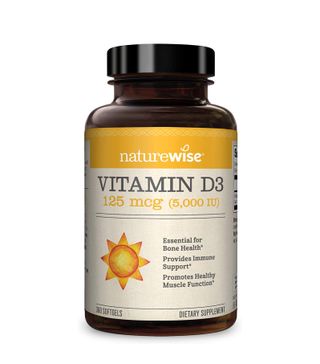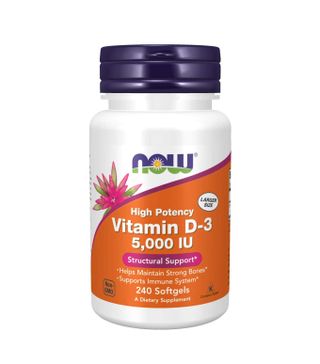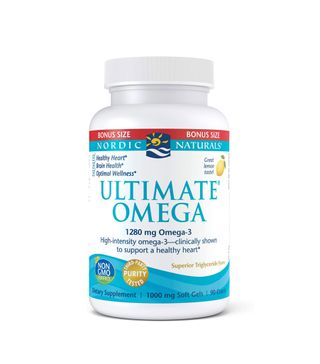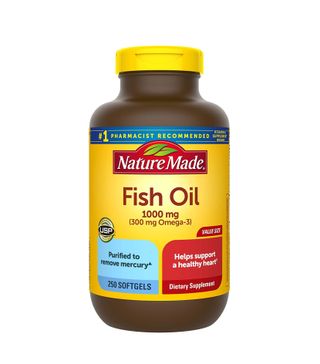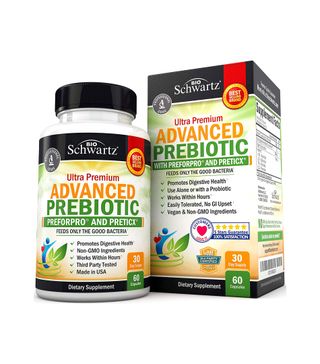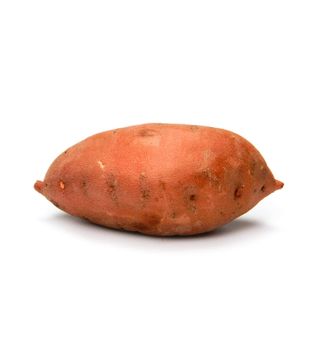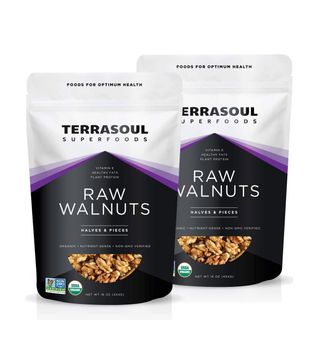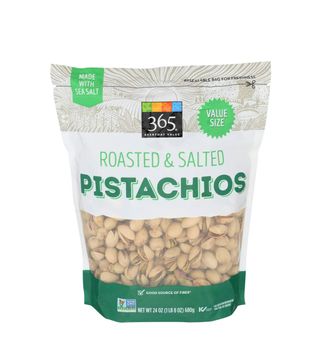This Doctor's Take on Gut Health Might Surprise You

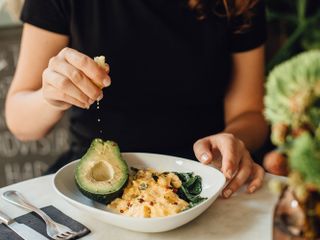
Gut health has been a hot topic for many years, and for good reason. The state of your gut can affect so many different parts of your body, from your digestive system to your mental health to your skin. We talked to Steven Gundry, MD, a top heart surgeon and the author of The Plant Paradox, The Longevity Paradox, and The Energy Paradox, to get his tips on how to take care of your gut. See what he had to say below.
1. Stop Eating Lectin-Laden Foods

Uh, what's a lectin? you might ask. Lectin-laden foods include "whole grains, beans, nightshades like potatoes, tomatoes, eggplant, peppers, and goji berries, as well as peanuts and cashews, which are actually beans," Gundry says. Wait, those foods sound healthy, right? According to Gundry, "The lectin proteins in these foods damage the gut wall similar to guided missile attacks!" Drama. "Lectins are the plant defense system against being eaten. Lectins pry open the wall of the gut and can travel throughout the body to our joints, our brain, our blood vessels, and lectins are responsible for the vast majority of our health issues today."
2. Avoid Artificial Sweeteners

This is a tip you've likely heard before, but Gundry advises you especially avoid "sucralose (Splenda), which kills friendly gut microbes (your gut buddies)." Artificial sweeteners don't stop at your microbes; they also "trick the brain, making you gain weight. Your tongue has receptors for sweet, not sugar. Two-thirds of our tongue's surface area is sweet receptors because, long ago, fruit was only available once a year during summer, and we needed to feast on fruit to fatten up for the winter. The sweet taste hit pleasure receptors in our brain, and did we ever gorge on fruit. But now, an artificial sweetener or even a natural sweetener like stevia tricks our brain into thinking that we are eating sugar and that we should eat more and more! Since sugar never actually arrives in our brain, our brain thinks we have been cheated and makes us look for and eat more food!" Gundry says.
3. Avoid Antibiotics Except for Life-Threatening Infections
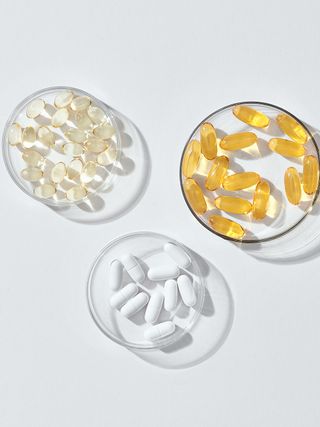
According to Gundry, "modern antibiotics carpet bomb the microbiome in your gut; one round of antibiotics can decimate your gut flora for two years! Most antibiotics are given by well-meaning doctors to treat coughs and colds, knowing full well that the cough was probably caused by a virus, which antibiotics don't kill. Broad-spectrum antibiotics were introduced in the '70s and were lifesavers because they killed most bugs; little did we know then that they also killed off all of our good bugs that keep us healthy and keep our immune system in great shape. Also, remember that antibiotics are given to cows, pigs, and chickens to fatten them quicker for slaughter. They are in the flesh of most commercially grown beef, pork, lamb, and chickens."
4. Avoid Taking NSAIDs Like Aleve or Advil

What's so harmful about a little Advil? According to Gundry, "these compounds destroy the lining of your small intestine, promoting leaky gut. Pharmaceutical companies have known the damage that NSAIDs cause to the gut wall for 50 years, but we couldn't see that damage with our endoscopes because it was out of reach. However, with 'Pill' cameras, we now know the destruction that these painkillers cause. In fact, even short-term NSAID use of four days dramatically increases the risk of a heart attack or stroke!" Scary stuff.
5. Take Vitamin D and Fish Oil Supplements
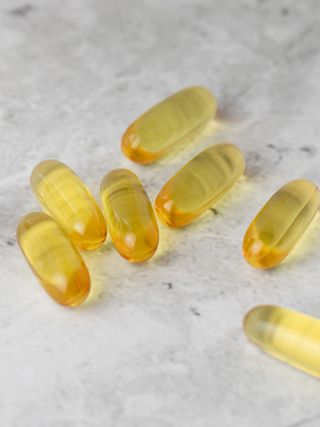
Vitamin D stimulates stem cells in the gut wall to heal the damage caused by the above," Gundry says. "Most people in this country are very vitamin D deficient. And contrary to popular belief and what doctors have been taught, vitamin D toxicity is extremely rare. In fact, I have never seen it," he says. Fish oil supplements might help as well. "Fish oil heals the wall of your gut and calms the immune system. Look for the most DHA per capsule and try to get 1000 mg/day of DHA," Gundry suggests.
Bonus: Eat or Take Prebiotic Fibers

What's a prebiotic? "Inulin, chicory, radicchio, okra, Belgian or curly endive, and artichokes are good examples," Gundry says. "Eat resistant starches like sweet potatoes, yucca, taro root, plantains, green bananas, as well as nuts like walnuts, pistachios, and macadamia nuts. These are food for your gut buddies, and without them, the bad bugs take over. And remember: Do not confuse prebiotics with probiotics. Probiotics are good bugs, but prebiotics are the fertilizer that makes the good bugs grow. And believe it or not, like I show in The Plant Paradox, good bugs [help you lose weight]. Just this week, a double-blind placebo controlled study from Edmonton Canada showed that overweight schoolchildren who were given prebiotics lost weight while the placebo group gained three times as much weight. Moreover, the bugs in the prebiotic group changed to good bugs, while the control group kept having bad bugs."
Consider our minds officially blown. Did you know any of these gut health tips before? Are you as surprised by Gundry's take as we are? Join our Facebook conversation and let us know, and be sure to talk to your own physician about what nutritional or medical adjustments, if any, are right for you.
Next up: Gut Experts Share All the Myths and Truths of Probiotics
This article was originally published at an earlier date and has since been updated.
Disclaimer
This article is provided for informational purposes only and is not intended to be used in the place of advice of your physician or other medical professionals. You should always consult with your doctor or healthcare provider first with any health-related questions.

Who's your beauty icon?
I'm a freak for the sixties set: Brigitte Bardot, Sophia Loren, Veruschka
Who are your 5 favorite people to follow on Instagram?
@stonefoxbride @lenadunham @sfgirlbybay @bullyinstagram @jengotch
What's the beauty essential you can’t live without?
Eyeliner
What's your desert island album?
The Eagles Hell Freezes Over
What's your favorite Byrdie.com story?
-
 I Live for Yoga and Pilates—These Are the Pieces That Help My Flow
I Live for Yoga and Pilates—These Are the Pieces That Help My FlowTake notes.
By Humaa Hussain
-
 It's Time to Get Our Nutrition in Check for Summer—This App Is Making It Easy
It's Time to Get Our Nutrition in Check for Summer—This App Is Making It EasyThe recipe ideas are endless.
By Who What Wear
-
 If You're Battling With Digestive Issues, This Could Be Why
If You're Battling With Digestive Issues, This Could Be WhyTurns out, you may not have IBS after all.
By Kia Topps
-
 Our Editors Own a Lot of Sneakers, But This Pair Comes in First Place Every Time
Our Editors Own a Lot of Sneakers, But This Pair Comes in First Place Every TimeA major win.
By Aniyah Morinia
-
 I Changed My Mind About Strength Training When I Tried This Workout
I Changed My Mind About Strength Training When I Tried This WorkoutMy confidence is officially on 10.
By Kia Topps
-
 This Type of Gear Will Take Your Workout to the Next Level
This Type of Gear Will Take Your Workout to the Next LevelBring it on.
By Sarah Yang
-
 6 Essential Oils That Will Heal Your Painful Sunburns
6 Essential Oils That Will Heal Your Painful SunburnsAll-natural relief ahead.
By Samantha Parsons
-
 The Activewear Accessory That Can Change Your Yoga Practice
The Activewear Accessory That Can Change Your Yoga PracticeIt's so helpful.
By Sarah Yang
